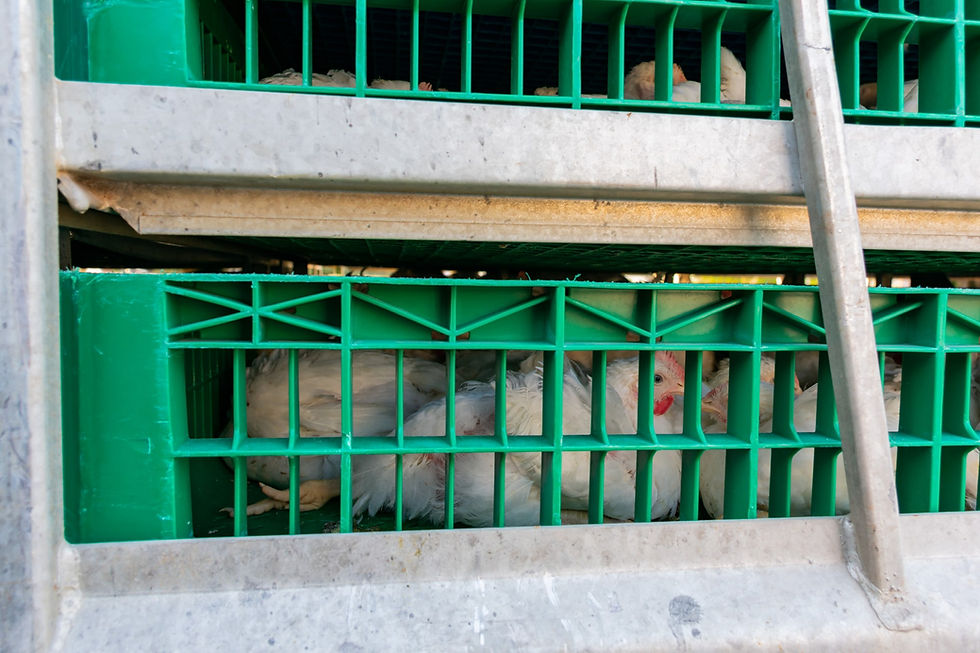Tips for Transporting Chickens in Ontario
- Yellow Pages Admin
- Apr 6, 2022
- 2 min read
Updated: Jul 20, 2024

Transportation puts a tremendous amount of stress on your chickens. If done improperly, chickens can injure themselves or even die during the moving process. Taking steps to transport your chickens humanely will minimize stress, produce healthier chickens and a more profitable flock. Here are some tips for transporting chickens in Ontario.
Common Problems When Transporting Chickens
Avoid these situations when transporting your chickens.
Overheating. Chickens are vulnerable to heat and can die if there’s inadequate ventilation.
Escaping. Chickens getting free from their crates puts them in danger in numerous ways.
Overcrowding. Stuffing too many chickens into a crate can cause them to suffocate or injure each other.
Cold or freezing weather. Chickens can get frostbite or hypothermia if transported in cold or wet conditions.
Chicken Transportation Solutions
To keep your chickens calm and safe while moving them, the Ontario government recommends the following:
Never load birds and allow them to sit overnight. Depriving them of water, food and other normal functions can stress them out.
Protect your birds from extreme weather by transporting them in the early morning during the hot summer months and avoid transporting them in freezing temperatures. Ensure your chickens are dry before transport. Wet feathers make them more vulnerable to extreme weather.
Use chicken crates and containers designed for poultry transport. The compartments should limit their movement, but every bird should be able to rest without touching another bird. The number of birds per crate depends on the weather, the size of the birds and the species. Never put two roosters in one crate, even if they get along on the farm.
When catching chickens, avoid loud noises, and don’t yell or run at the birds. Handle laying hens with extra caution as their bones are fragile. Hold chickens upright as they can suffocate if held upside down. Try to round up and transport your birds under low light, as darkness puts chickens at ease.
Clean and disinfect your chicken crates before and after every use.
Never transport birds inside the trunk of a car, in a bag, a closed trailer without ventilation, a wooden crate that can’t be disinfected, or loose in a trailer.
Never mix birds of different sizes or species. For example, never place chickens in a crate with ducks or geese.
Lastly, it’s illegal to transport birds that are sick or injured.
Farm Supplies and Poultry Accessories in Southern Ontario
At Ontario Wholesale Farm Direct, we offer a range of poultry accessories that make handling chickens easier, such as heavy-duty poultry crates. Our inventory of farming equipment also includes carefully crafted products such as water and feed tubs, coops and kennels. Contact us to place an order and schedule a delivery. We serve customers throughout Southern Ontario.
